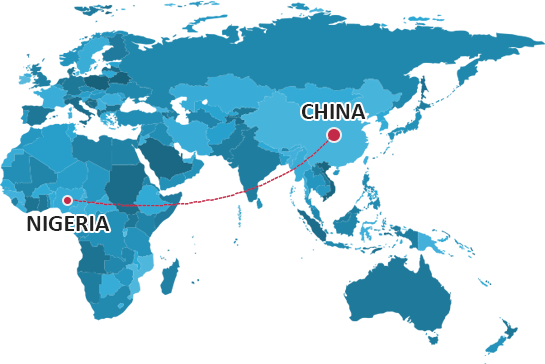
SHIPPING FROM CHINA TO Nigeria
Winsail International Logistics Company provide air or ocean cargo shipping from China to Nigeria. High quality, efficient, on time, flexible is our service concept, we coordinate and monitor the whole cargo transport track to ensure that goods arrive safely and timely. With our expanding service network, we can offer cargo logistics for the whole China to Nigeria regions (APAPA, LAGOS, ONNE, TIN CAN, CALABAR, FORCADOS, BONNY...) such as pick up & delivery, insurance, documentation, packaging, loading, unloading, customer clearance, warehousing, consolidating and so on. We can handle not only general cargo but also sensitive cargo, dangerous cargo, bulk cargo, choosing a full range of logistics solutions and saving cost for you.
Winsail Logistics are a company, providing professional and efficient international logistics service and also deal with a wide ranges of freight forwarding services. Whenever you have import shipment plan from China, no matter with various types of legal cargo, we are always here standby for you offering safe, efficient, competitive cargo transport solutions. Make sure you will get the best, fastest, most competitiv, without worries shipping service.
Pls feel free to reach us for better freight quotation, you can leave your inquiry in our customer service column, our staff will submit the quotation as soon as posibble. You inquiry in the near future will be highly appreciate!







